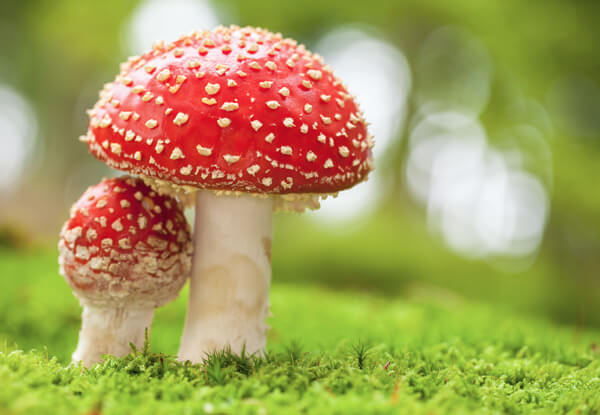
MUSHROOM TOXICITY
Dr. Nichola Gaither
Mushroom toxicity is a real concern for our canine companions. Dogs are curious creatures and they tend to wander and scavenge when outdoors. This puts them at risk for ingesting mushrooms. The key to treating mushroom toxicity is early identification and treatment. There are several species of poisonous mushrooms in this area but identification can be difficult for the layperson. If you see your pet eating mushrooms outside, you should assume they are poisonous until proven otherwise. When collecting the mushrooms for identification, you should either place them in a moist paper towel, wax paper or a paper bag. Do NOT place them in a plastic bag. Then consult Pet Poison Helpline at 800-213-6680 on your way to the veterinarian. They can then ensure that they have a toxicologist available to assist in your pet’s care. Signs of mushroom toxicity can include salivation, lethargy, vomiting, diarrhea (bloody or not), and even neurologic signs like ataxia or stumbling. Seek veterinary care for your pet IMMEDIATELY! It can sometimes take 10-12 hours for clinical signs to develop. Do NOT wait that long - go to the veterinarian immediately! Early, aggressive decontamination and enhanced elimination can greatly decrease the negative effects. Your veterinarian may induce vomiting to rid the stomach of the ingested contents. Activated charcoal may be administered to prevent absorption of the toxin. Pets can also benefit from supportive care with IV fluids and sometimes need an enema as well. Baseline blood work can be performed to ensure the liver and other organs are not damaged. It is a good idea to watch your pets closely when outdoors and keeping them on a leash can help prevent scavenging. Also check your yard and surrounding frequently, especially after wet weather and remove mushrooms promptly. The best method of controlling mushroom poisoning is prevention! For even more information, visit petpoisonhelpline.com/blog/mushrooms.

